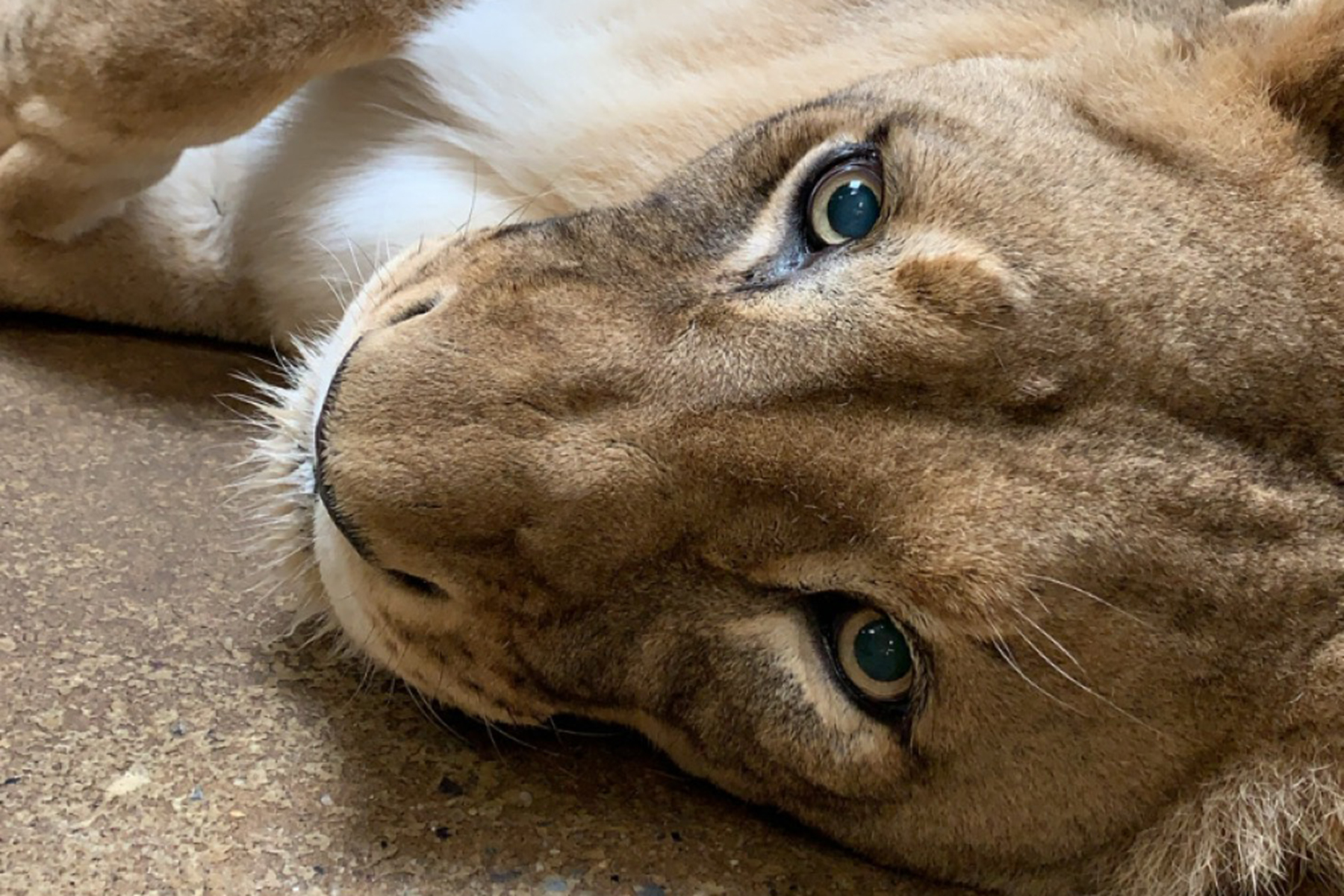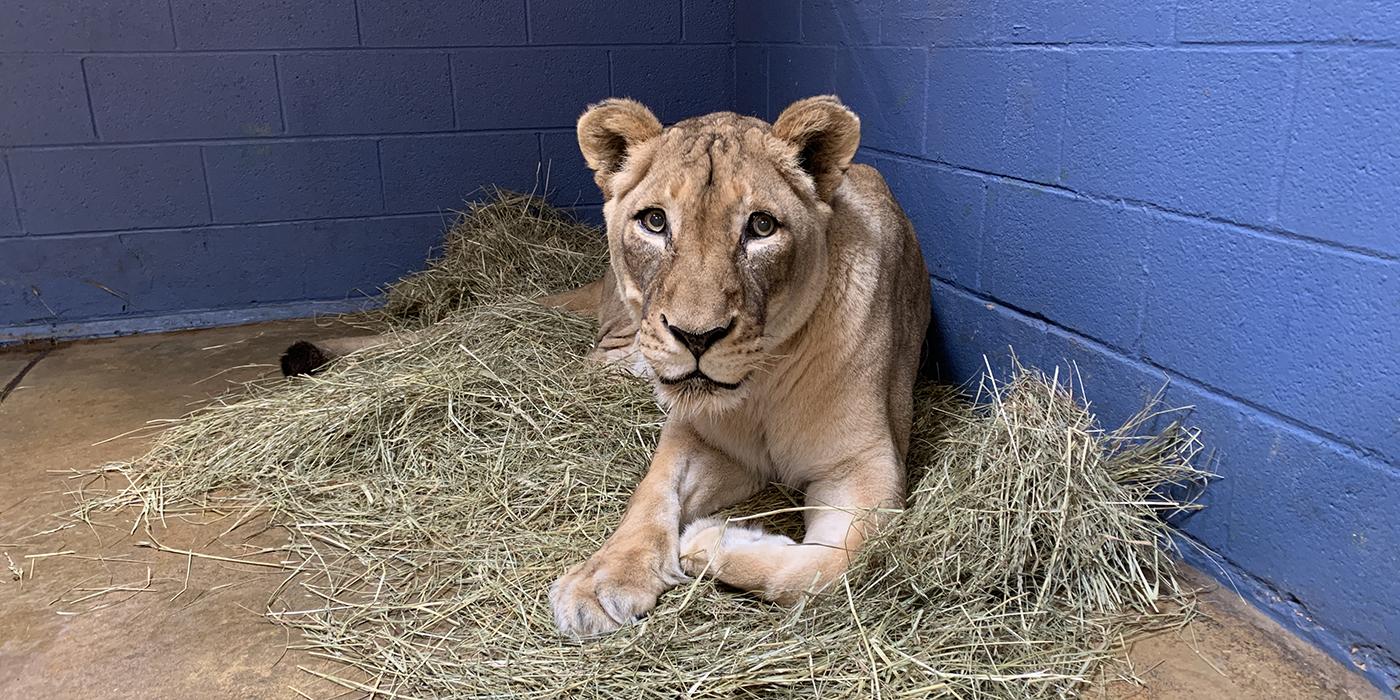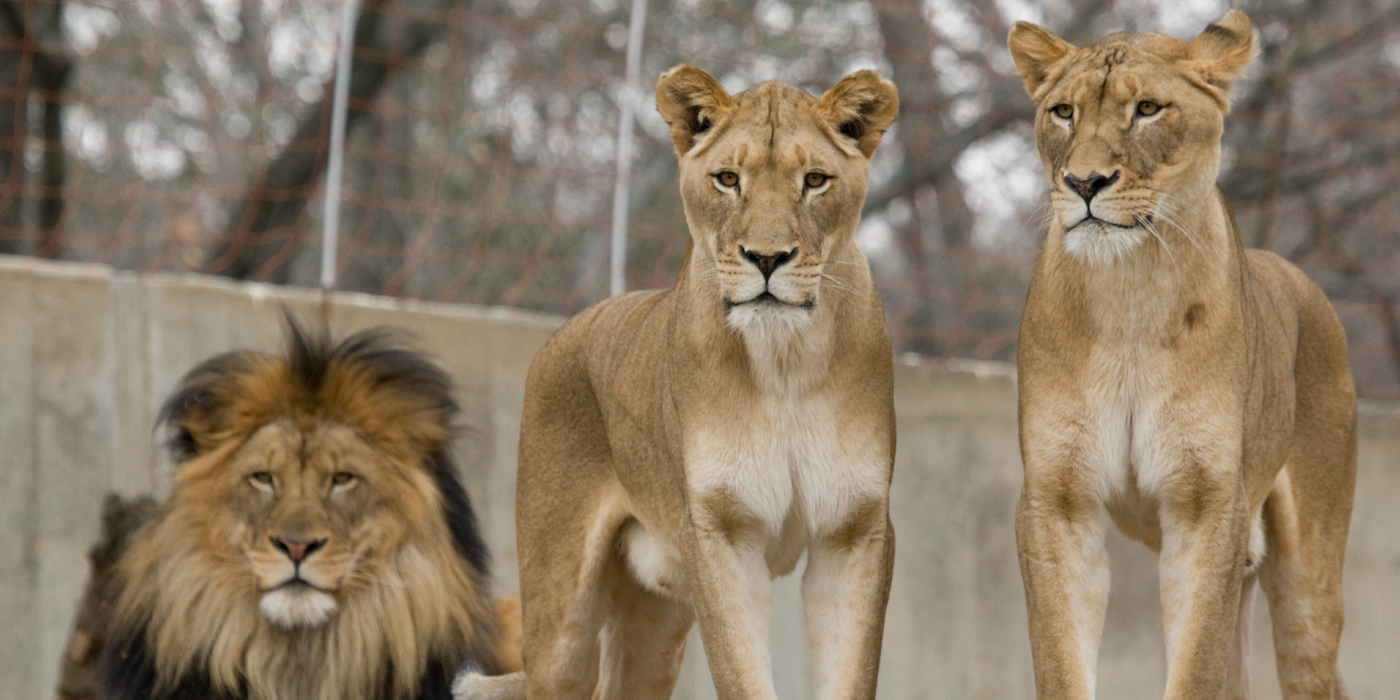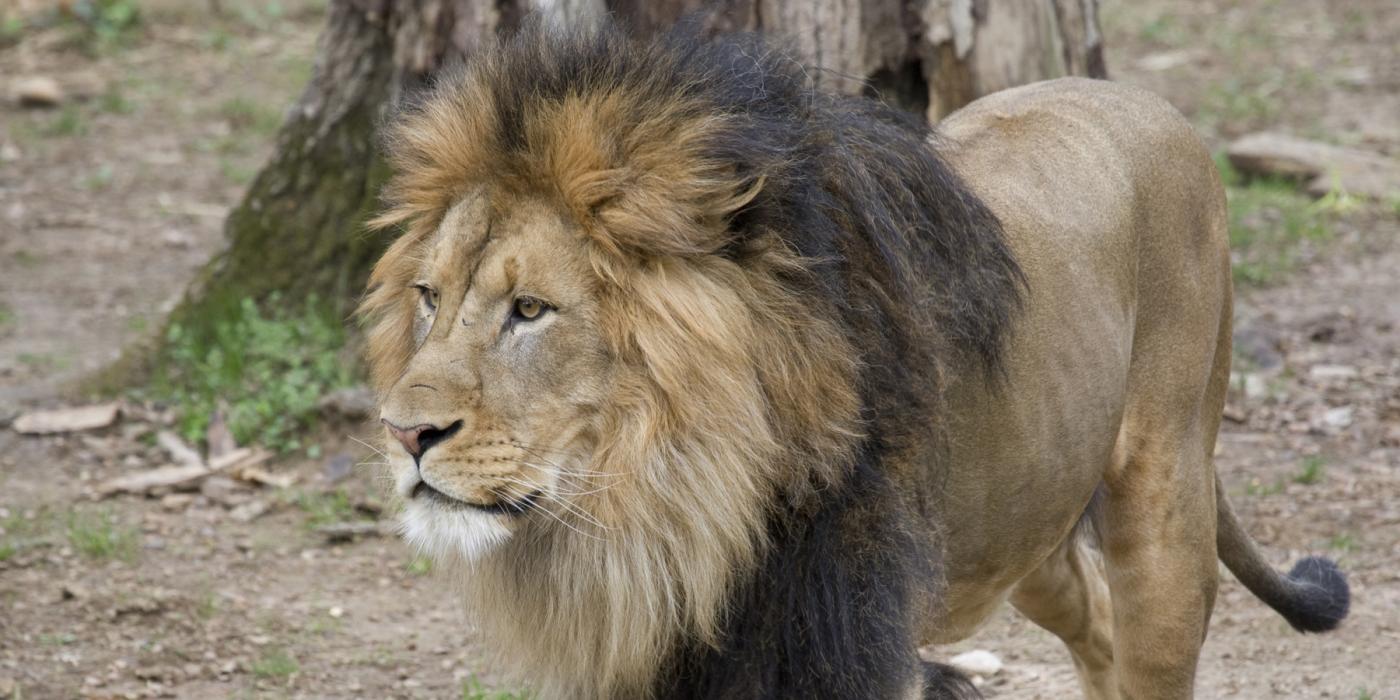An Update on African Lion Shera
Eagle-eyed visitors to the Smithsonian’s National Zoo and Conservation Biology Institute may have noticed that the Great Cats exhibit has been less one African lion lately.
We are excited to share that 10-year-old female, Amahle, left our Zoo in May after receiving a breeding recommendation from the Association of Zoos and Aquariums’ Species Survival Plan! Last month, she moved to the Great Plains Zoo in South Dakota to meet her new mate, a male named Simba who hails from the Detroit Zoo in Michigan. This is an important milestone for Amahle, who will now have an opportunity to contribute cubs of her own to the North American population of African lions.
Here in Washington, D.C., we have three lions on exhibit: Shera and her sons, Shaka and Jumbe, who are Amahle’s full siblings and littermates. Shaka and Jumbe get along well and live together in a bachelor group, separate from Shera.

African lion Shera rests on the cool floor of her indoor habitat.
At 19 years old, Shera is considered geriatric for her species, as her age is comparable to that of an 80-year-old human. For most of Shera’s life, she lived with her sister, Naba, and their offspring. For as long as I’ve known her, Shera has had an independent personality. While Naba preferred to spend time with the other lions, Shera would often rest by herself in another area of the habitat. One of her favorite activities is napping, either in a big, comfy hay pile or in a sunny spot in the outdoor habitat.
Although Shera is Amahle’s mother, Amahle was much closer to Naba, who was humanely euthanized in fall 2022 following an irreversible decline in health. After Naba passed, Shera and Amahle spent more time together. Sometimes, Amahle’s youthful energy would conflict with Shera’s desire to nap. In the days after Amahle left, we noticed that Shera spent more time sleeping. She also made big, booming roars more often.
In the lions’ indoor enclosure, Shera, Shaka and Jumbe have the ability to see, smell and interact with one another through the mesh “howdy” doors that separate their enclosures. Sometimes, Shera chooses not to interact with her sons. At other times, she will get up close and roar at them!
Another of Shera’s favorite indoor activities is ‘supervising’ keepers, as our office and kitchen are across from her enclosures. She seems to get a kick out of watching us prepare diets for all the Great Cats exhibit residents. Shera loves a nice dietary treat, whether it’s a delicious bone or a chunk of frozen blood (which helps keep her cool when the weather is hot)!
Shera is our smartest lion and voluntarily participates in husbandry and medical training sessions. When a keeper gives either a verbal cue or hand signal, Shera will do the corresponding behavior. She knows she will receive a food reinforcement (meatballs) for following our cues. Shera is very determined and when she wants something, she gets it. Even when she was among the whole pride, if she cared about a particular food, hay pile or sunny spot—it was hers!
In this video, Shera's daughter, Amahle, participates in injection training with Great Cats keepers Charlie Shaw and Dell Guglielmo. She follows Charlie's cues to line up along the mesh and present her hip. Keepers give practice injections to the lions, so they get used to the feeling of a needle. They start with a capped needle, then move to a dull needle, a regular needle, and a saline injection until the lions show no fear or hesitation about getting a shot.
Some of the husbandry behaviors she knows include opening her mouth, sitting, laying down and standing up. All of these behaviors allow us to get a good look at her up close and check for any signs of illness or injuries that may need veterinary attention.
On the medical side, Shera will sit still for injections and allows us to draw blood or take blood pressure measurements from her tail—all while she is awake. She seems to enjoy participating and will often flick her tail towards us—even after training has concluded—in the hope of receiving more tasty meatballs!
Great Cats keeper Ish Ganame offers extra water to Shera, who laps it up from a squeeze bottle.
Shera participates in blood draws every three months, which helps our veterinary team track her mild renal insufficiencies. Thanks to her training, our vets are able to be proactive with their treatments. She receives extra liquids every day and a medication to help with her renal values. Overall, for a 19 year old lion, Shera is in fantastic shape!
If you’re planning to visit Shera, I recommend doing so in the early morning or late evening. We give her the choice every day to go outside, and in the summer heat she sometimes chooses to stay indoors in the air conditioning. Because of her age, we want to make her as comfortable as possible. On more mild days, keep an eye out for her in the outdoor habitat. Often, you’ll find her resting in the shaded dens or tucked up against a nice, cool wall.
Want to learn more about lions? Don’t miss our Daily Animal Demos, which take place at 11 a.m. at Great Cats exhibit.
Related Species:



